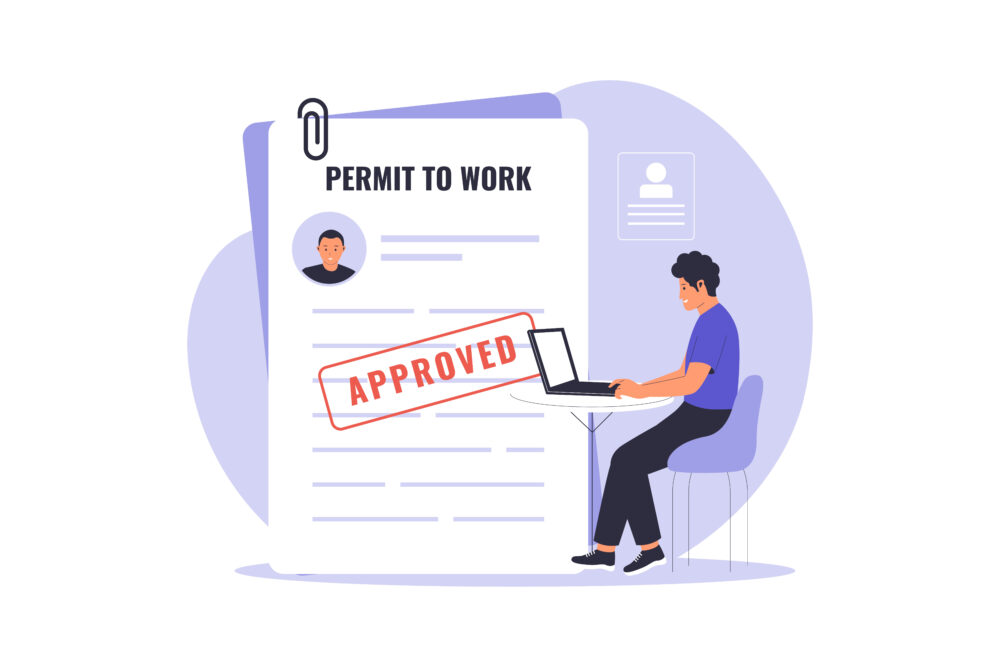Regulations on labor and social policies for the protection of female employees, particularly those who are pregnant or giving birth, are highly prioritized in Vietnam’s legal system. This attention underscores the State’s commitment to welfare and social security for its citizens. The maternity policies are primarily stipulated in labor laws and social insurance regulations, ensuring that female employees are entitled to fundamental rights, such as rest, health care and financial support during this vital period. Below is an analysis of some key maternity benefits provided for female employees in accordance with applicable law.
1. Right to maternity protection
According to Article 137 of the Labor Code 2019, the employer is responsible for complying with the following maternity protection regulations:
(i) The employer is not allowed to require female employees to work night shifts, overtime or travel for work if they’re:
– pregnant from the seventh month or from the sixth month if working in highland, remote, border, or island areas;
– nursing a child under 12 months old, except where the employee consents.
(ii) The employer must transfer female employees to lighter, safer work or reduce their daily working hours by one hour without a reduction in salary, rights, or benefits until the end of the period in which they are nursing a child under 12 months old, in cases where the female employee:
– works in a heavy, hazardous, dangerous occupation or an extremely heavy, hazardous, dangerous occupation or in an occupation that adversely affects reproductive functions and childcare during pregnancy; and
– notifies the employer that the above job adversely affects reproductive functions and childcare during pregnancy.
(iii) The employer is not allowed to dismiss or unilaterally terminate the employment contract of an employee due to marriage, pregnancy, maternity leave or nursing a child under 12 months old, except in cases where the employer:
– is an individual who has died, has been declared by the court as lacking legal capacity, missing, or deceased; or
– is not an individual and has ceased operations or has been issued a notice by the provincial business registration authority stating that there is no legal representative or authorized person to exercise the rights and obligations of the legal representative.
(iv) The employer must give priority to signing a new employment contract in cases where the employment contract expires while the female employee is pregnant or nursing a child under 12 months old.
(v) Employees who are nursing a child under 12 months old are entitled to a daily break of 60 minutes during working hours while still receiving full wages as per their employment contract.
2. Right to terminate or suspend a labor contract unilaterally
According to Article 138 of the Labor Code 2019, a pregnant female employee has the right to unilaterally terminate or suspend the execution of a labor contract if the following conditions are met:
– There is certification from a competent medical facility confirming that continuing to work would negatively affect the fetus;
– The employee must notify the employer and provide the certification from the competent medical facility.
For cases of contract suspension, the suspension period shall be agreed upon by the employee and the employer but must be at least equal to the period prescribed by the competent medical facility. If no specific period is prescribed by the medical facility, the two parties shall mutually agree on the suspension period.
3. Right to maternity benefits
A female employee who is pregnant or gives birth is entitled to maternity benefits under social insurance law if she has participated in social insurance for at least six months within the 12 months before childbirth. Accordingly, maternity benefits include:
(i) Antenatal care leave:(1) During pregnancy, a female employee is entitled to leave for antenatal check-ups five times, with one day per visit. If the employee lives far from a medical facility, has medical conditions, or has an abnormal pregnancy, she is entitled to two days per visit. The leave for antenatal check-ups is counted as working days and does not include public holidays, Tet holidays, or weekly rest days.
(ii) Leave in case of miscarriage, abortion, stillbirth, or therapeutic abortion:(2)
A female employee is entitled to maternity leave as prescribed by a competent medical facility in cases of miscarriage, abortion, suction curettage, stillbirth, or therapeutic abortion, with the maximum leave period as follows:
– 10 days if the pregnancy is under 5 weeks.
– 20 days if the pregnancy is from 5 weeks to under 13 weeks.
– 40 days if the pregnancy is from 13 weeks to under 25 weeks.
– 50 days if the pregnancy is 25 weeks or more.
(iii) Maternity leave(3)
A female employee who gives birth is entitled to six months of maternity leave, including public holidays, Tet holidays, and weekly rest days. In the case of multiple births (twins or more), starting from the second child, the mother is entitled to one additional month of leave per child. The maximum period of maternity leave before childbirth is two months.
If the baby passes away before two months old, the mother is entitled to four months of leave from the date of birth. If the baby passes away at two months old or older, the mother is entitled to two months of leave from the date of the baby’s death. However, the total maternity leave cannot exceed the standard leave period for childbirth.
Additionally, after the maternity leave period ends, if the female employee wishes to extend her leave, she may take additional unpaid leave upon agreement with the employer.(4)
(iv) One-time childbirth allowance: A female employee who gives birth is entitled to a one-time allowance per child, equivalent to two times the statutory base salary applicable in the month of childbirth.(5)
(v) Returning to work before the end of maternity leave(6)
A female employee may return to work before the end of the maternity leave period stated in section (iii) if the following conditions are met:
– Taken at least four months of maternity leave.
– Notified the employer in advance and obtained approval.
In addition to receiving wages for the days worked, a female employee returning to work early will continue to receive maternity benefits until the end of the maternity leave period.
Labor law ensures that female employees have the right to return to their previous job after maternity leave without a reduction in salary, rights, or benefits. If the previous job is no longer available, the employer must arrange an alternative job with a salary not lower than the pre-maternity leave salary.(7)
(vi) Post-maternity convalescence and recovery leave(8)
Within 30 days after returning to work, if the employee’s health has not fully recovered, she is entitled to convalescence and recovery leave for 5 to 10 days, as determined by the employer and the grassroots trade union. If no trade union has been established, the employer will make the decision.
The convalescence and recovery leave includes public holidays, Tet holidays and weekly rest days. If the leave extends from the previous year into the following year, it is counted toward the previous year’s leave entitlement.
(1) Article 32 of Law on Social Insurance 2014.
(2) Article 33 of the Law on Social Insurance 2014.
(3) Article 34 of the Law on Social Insurance 2014.
(4) Clause 3 Article 139 of the Labor Code 2019.
(5) Article 38 of the Law on Social Insurance 2019.
(6) Article 40 of the Law on Social Insurance 2014.
(7) Article 140 of the Labor Code 2019.
(8) Article 41 of the Law on Social Insurance 2014.
Disclaimers:
This article is for general information purposes only and is not intended to provide any legal advice for any particular case. The legal provisions referenced in the content are in effect at the time of publication but may have expired at the time you read the content. We therefore advise that you always consult a professional consultant before applying any content.
For issues related to the content or intellectual property rights of the article, please email cs@apolatlegal.vn.
Apolat Legal is a law firm in Vietnam with experience and capacity to provide consulting services related to Employment and contact our team of lawyers in Vietnam via email info@apolatlegal.com.





































